New air strikes on Syria's Aleppo kill dozens
Hundreds have been killed during the past week as regime aircraft have dropped TNT-filled barrels on Aleppo.
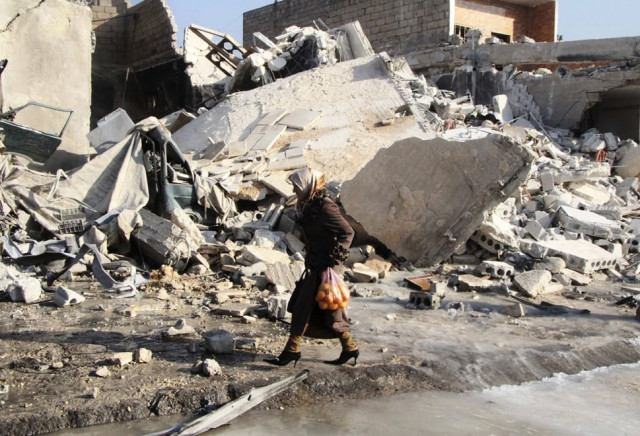
A woman carrying oranges walks past debris at a site damaged by what activists said was an air raid by forces loyal to Syrian President Bashar Al-Assad, at Masaken Hanano in Aleppo, December 22, 2013. PHOTO: REUTERS
The Syrian Observatory for Human Rights said six children were among 56 people killed in so-called barrel bomb attacks and airstrikes in Aleppo and neighbouring villages.
Hundreds have been killed during the past week as regime aircraft have dropped TNT-filled barrels on Aleppo, now largely reduced to rubble, activists, medics and other witnesses said.
The Observatory said the raids killed at least 56 people, including seven rebel fighters and six children, in several opposition neighbourhoods of Aleppo city as well as nearby villages Atareb and Marea, adding the number was likely to rise.
Its director Rami Abdel Rahman said President Bashar al-Assad's regime "is trying to turn people in opposition areas against the rebels. It is killing and forcing people to flee in order to secure that goal".
The Aleppo Media Centre network of citizen journalists also expressed concern about the bombing of the Hanano neighbourhood, saying a bus had been struck, "leaving no survivors".
Aleppo has been split between opposition and government forces since a massive rebel assault in the summer of 2012.
The Syrian Revolution General Commission activist network described "mass flight to the countryside, despite the intense cold," and said the dead included two ambulance workers.
Aleppo's opposition Provincial Council said schools in rebel-held areas would be closed for a week because of "systematic, deliberate bombing," after two schools were hit Sunday.
The Observatory meanwhile reported an airstrike struck the Syrian side of the Bab al-Hawa border crossing with Turkey, causing no casualties. The bombing prompted Turkey to close the crossing, which is vital for the flow of humanitarian assistance.
The main opposition National Coalition lashed out at the regime offensive, renewing calls for a no-fly zone.
In a statement late Sunday, Munzer Aqbiq, an adviser to the Coalition's president, said: "Until Assad's warplanes are stopped, the humanitarian disaster, regional instability, and the rise of extremism will only continue to get worse."
On Saturday, Human Rights Watch accused government troops of using weapons and tactics that fail to distinguish between civilians and combatants, making such attacks "unlawful".
One security source has denied the regime uses such bombs, while another has told AFP the air force prefers them because they are "cheaper."
Elsewhere in Syria, a car bombing in the Shiite village of Omm al-Amd in the central province of Homs killed eight, including six schoolchildren, state media reported.
The Observatory, a Britain-based group which relies on activists and other witnesses inside Syria, reported a toll of at least 20, including seven children.
It said Omm al-Amd is home to a Shia community that backs Assad, unlike the majority Sunni rebels fighting to topple him.
An estimated 126,000 people have been killed in the conflict since March 2011.
The International Committee of the Red Cross said another half-million people have been wounded, millions displaced and tens of thousands detained.
"The wounded are often not cared for properly and the chronically ill often do not receive the treatment they need," ICRC chief Magne Barth said, as the group again urged both sides to allow humanitarian aid to reach civilians.
Barth said authorities were preventing access to rebel-held areas besieged by loyalist forces.
The situation is especially grim for the sick and wounded in areas of fierce fighting, such as Aleppo, where a young Reuters freelance photographer, Molhem Barakat, was killed on Friday.
According to Reporters Without Borders, Syria is the world's most dangerous country for journalists, with 27 professionals and 93 citizen journalists killed.
Also in Aleppo, Red Crescent volunteers escorted seven detainees out of the city's central prison after authorities decided to release 366 prisoners "for humanitarian reasons," said the Observatory.
The remains of British doctor Abbas Khan, who died in a Syrian jail, were meanwhile flown back to London on Sunday.
British authorities and Khan's family have accused his jailers of killing him days before he was to be released.
Damascus says he committed suicide in prison.
The doctor's sister Sara told Sky News Sunday it was "absolutely despicable that the Syrians feel that they can give us multiple explanations for his death."
British Prime Minister David Cameron wrote to the family, meanwhile, saying that Damascus must "answer for" his "sickening" death, according to a government source.

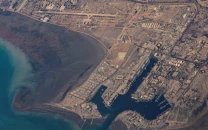
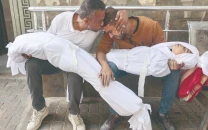
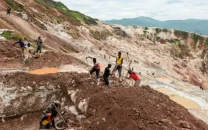
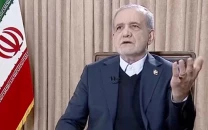
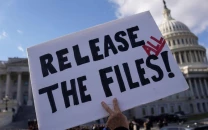
1721969212-0/BeFunky-collage]-(35)1721969212-0-208x130.webp)












COMMENTS
Comments are moderated and generally will be posted if they are on-topic and not abusive.
For more information, please see our Comments FAQ